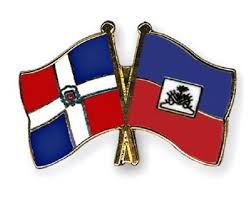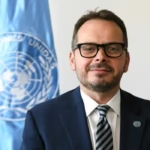United Nations, New York — Dominican Foreign Minister Roberto Álvarez Gil issued a renewed and urgent call on Wednesday for bold and coordinated international action to prevent the collapse of neighboring Haiti, during a special meeting of the UN Security Council focused on the deepening institutional, security, and humanitarian crisis engulfing the Caribbean nation.
“There is no ambiguity in the situation. This crisis, which is currently afflicting the Haitian people, transcends borders,” Álvarez told the Council, describing the terror inflicted by armed gangs that have overtaken state authority and are perpetrating systematic violence against civilians.
Álvarez once again stressed that the deteriorating situation in Haiti is fueling unmanageable migratory pressure on the Dominican Republic and other countries in the region. He recalled the initiative led last month by President Luis Abinader, along with three former Dominican heads of state, who sent formal letters to members of the Security Council urging them to act swiftly to help stabilize Haiti.
“The urgency is real. There is no time to waste,” said the foreign minister, voicing the Dominican Republic’s full support for the renewal of the United Nations Integrated Office in Haiti (BINUH) and backing UN Secretary-General António Guterres’s proposal to create a dedicated support office for managing the operational and logistical needs of the Multinational Security Support Mission (MSS) in Haiti.
Álvarez urged the Council to adopt what he called a “hybrid model” without delay, describing it as the most effective way to ensure both logistical stability and operational efficiency for the MSS, as well as to equip the mission with a clear and actionable roadmap.
“Renewing BINUH’s mandate and strengthening the MSS are not merely operational necessities — they are a reaffirmation of the United Nations’ credibility. It is an act of coherence with the values the UN stands for, and above all, an act of justice for the Haitian people,” Álvarez emphasized.
The Dominican minister also reiterated his government’s commitment to curbing arms trafficking into Haiti via Dominican territory and voiced serious concern over the political uncertainty threatening to destabilize Haiti further in the coming months.
With the transitional government — the Presidential Transitional Council (CPT) — expected to hand over power to elected leaders by February 7, 2026, Álvarez warned that the likelihood of holding credible elections by that deadline is increasingly in doubt. He called on Haitian leaders to renew the national political consensus to prevent the crisis from deepening.







